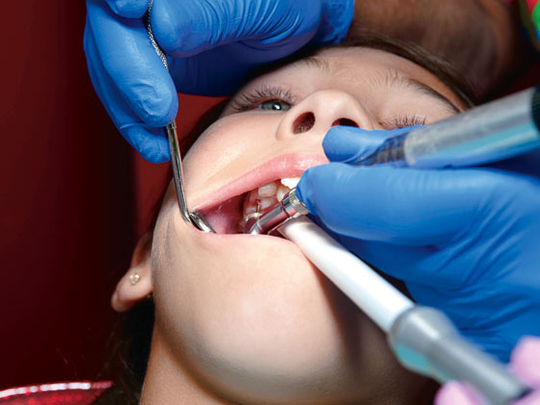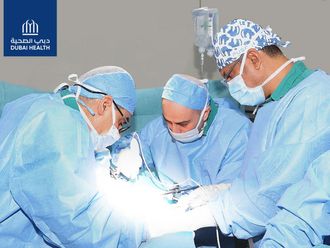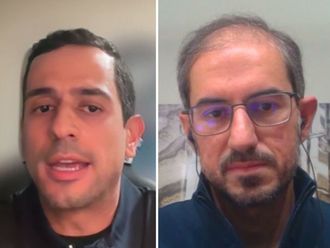
At his fourth birthday party, Arif Mahmood was in searing pain. A cavity in one of his molars had become so painful, his mother needed to give him an analgesic. After a few hours' relief, the pain returned with a vengeance that night. An emergency dash to hospital showed he urgently needed root canal treatment.
Mahmood's mother was in a fix. She could not decide whether she should consult another dentist about the efficacy of root canal treatment on primary teeth or simply dispense with Dh1,500 per sitting for the treatment. Root canal treatment is one of the most common procedures suggested by dentists to prevent the extraction of teeth. But a lack of knowledge about the treatment and the recovery phase leaves many parents wondering whether they need to look for alternatives.
Also referred to as a pulpotomy, a root canal treatment is used as a last resort to rescue a decayed tooth and prevent further infection of the supporting tissues and also formation of any abscesses. The procedure involves the removal of infected and damaged tissues from the interior of a tooth, followed by cleansing, filling and sealing of the vacant space occupied by the pulp, which contains the tooth's nerve and nutrient-supplying blood vessels.
This treatment calls for several appointments, depending on the complexity of a tooth and its decay, says Dr Nadir Bushra El Tayeb, GP Dentist, Medcare Hospital. "Sedative dressings and temporary fillings are done inside the infected tooth during each visit to help settle the supporting tissues and also eliminate any remaining bacteria," adds Dr El Tayeb.
After assessing the medical and dental history of a patient and conducting a thorough clinical examination, a dentist must decide on whether a root canal is necessary. "The age of the patient, the severity of the infection and whether the tooth is at all restorable are considered before suggesting the treatment," says Dr Mallika Kumar, GP Dentist at the Lifeline Healthcare Group.
But are root canals really effective on children with primary or baby teeth? As these temporary or deciduous teeth eventually fall out, parents often find it hard to decide on such an expensive procedure for their children.
"A root canal treatment in children with primary teeth is very effective," says Dr Kumar. "The technique and medicaments for root canal treatment vary because of morphological and physiological differences in primary and permanent teeth. It is generally accepted that primary teeth, in particular, should be retained until they exfoliate naturally to avoid loss of space and crowding of permanent dentition."
Dr El Tayeb agrees. "If, however, the tooth cannot be saved, then removal of the tooth with space maintaining measures are advised," he says.
With properly done root canal procedure though the treated tooth can last for a long time, experts suggest that it is critical to opt for a crown or cap over the tooth to restore it to its normal function.












